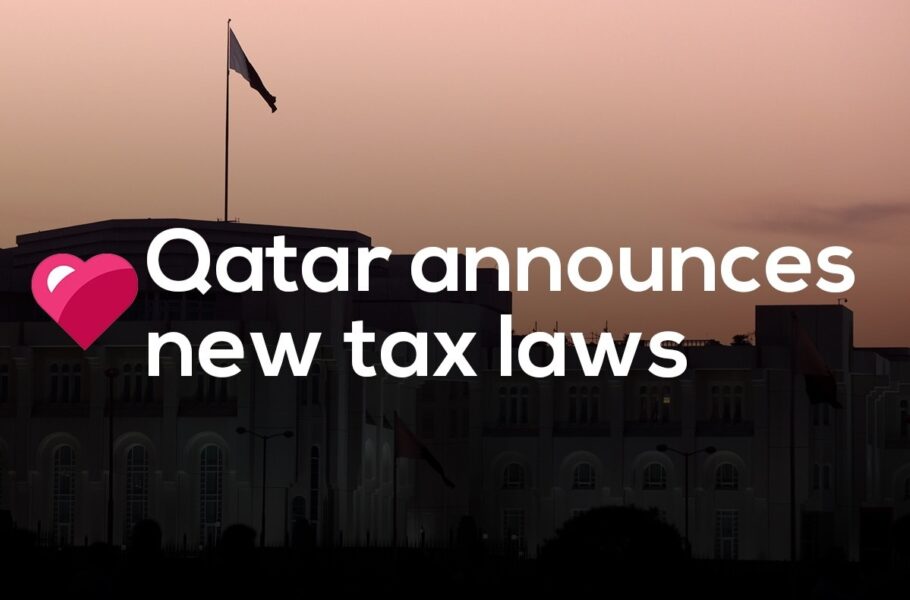
Qatar is one of the few tax-free countries in the world, and has yet to implement Value Added Tax (VAT), income tax, capital tax or wealth tax. However, there has been a lot of talk about taxes in Qatar in recent times along with the enforcement of VAT which is basically a consumption tax added to all sales and goods. Saudi Arabia and the United Arab Emirates have already introduced a 5% VAT on goods since 1 January 2018, and have been pressing Qatar to follow in their footsteps.
Today, Qatar is on the way to developing its financial system and procedures to bring them up to par with international financial practices. Its aim is to enhance economic growth and to stabilise and secure itself financially. To achieve this aim, the Qatari government has introduced some new taxation laws today because it knows that the taxation system is an integral part of financial policies in many countries around the globe.
Among these taxes are the Law number (24) of 2018 on Income Tax and the Law number (25) of 2018 on the Selective Tax. Another major decision that was made today is one to set up the General Tax Authority.
Under the supervision of the Ministry of Finance, the General Tax Authority (GTA) has been established. This will be a separate entity and its main focus will be to implement all tax laws. The mandate of the GTA is as follow:
The Income Tax law of 2018 is an amendment of all the previous income tax laws passed by Qatar. The income tax on foreign companies working in Qatar or on the stake of foreign partners in joint ventures has remained the same as it was before. This income tax has for the time being been fixed at a 10% flat rate on profits.
The amendments that have been made in the Income Tax law today focus on the following:
The important thing to note here is that this year again, Qatar will not be imposing any income tax on the salaries and wages of Qatari citizens and residents of the country. It is also giving exemption for equity shares that have been listed on a recognised stock exchange, profits gained on bank deposits and companies that operate in fisheries and the agricultural sector. Marine and aerial transportation have also been granted exemption under the principal of reciprocity.
Qatar's Selective Tax law has been specificall designed to levy taxes on certain harmful or health-damaging goods. This new law will come into force when the new year of 2019 begins.
What does this law include?
The law includes a 100% tax on tobacco and its derivative products and all energy drinks, along with a 50% tax on all sugary drinks.
According to the GCC VAT Framework Agreement signed by all member states, which include Qatar, Kuwait, Oman, Saudi Arabia, UAE and Bahrain, Qatar was expected to impose VAT by 1 January 2019, but for the meantime, has deferred its decision to implement VAT.
Right now Qatar does not feel the need to levy the 5% VAT decided on in the framework since the new fiscal year of 2019 is looking good for Qatar. For more details on Qatar's new fiscal year 2019, click here
Did you ever think Qatar would enforce taxes? What is your take on some of these new taxes? Do taxes in Qatar serve a purpose? Do let us know what you think in our Comments section. Like and share the article - it keeps us going!
Follow us on our social media channels:
![]() @ILQlive
@ILQlive
![]() @ILQlive
@ILQlive
![]() @ILoveQtr
@ILoveQtr
![]() ILoveQatar
ILoveQatar

You have successfully registered your account!
Please confirm your e-mail address by clicking on the URL sent to you.The e-mail usually arrives in 5-10 minutes.
How ajeeb was that!? Thanks for contributing to our community! Your post will appear after we take a quick look!